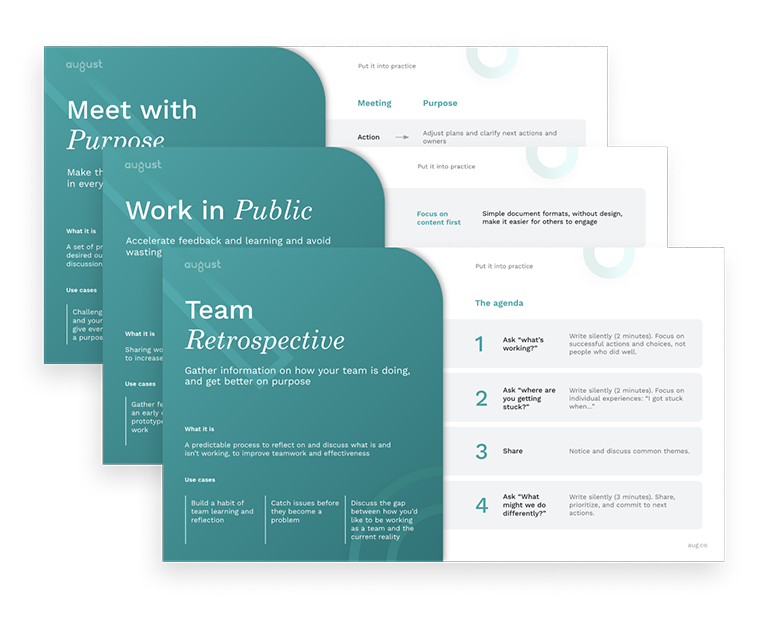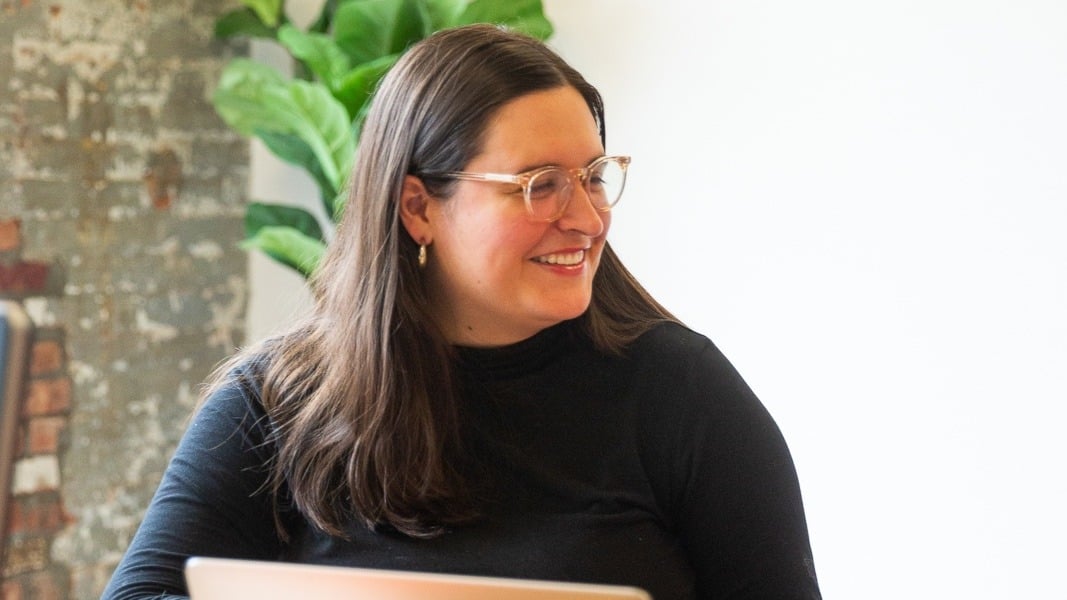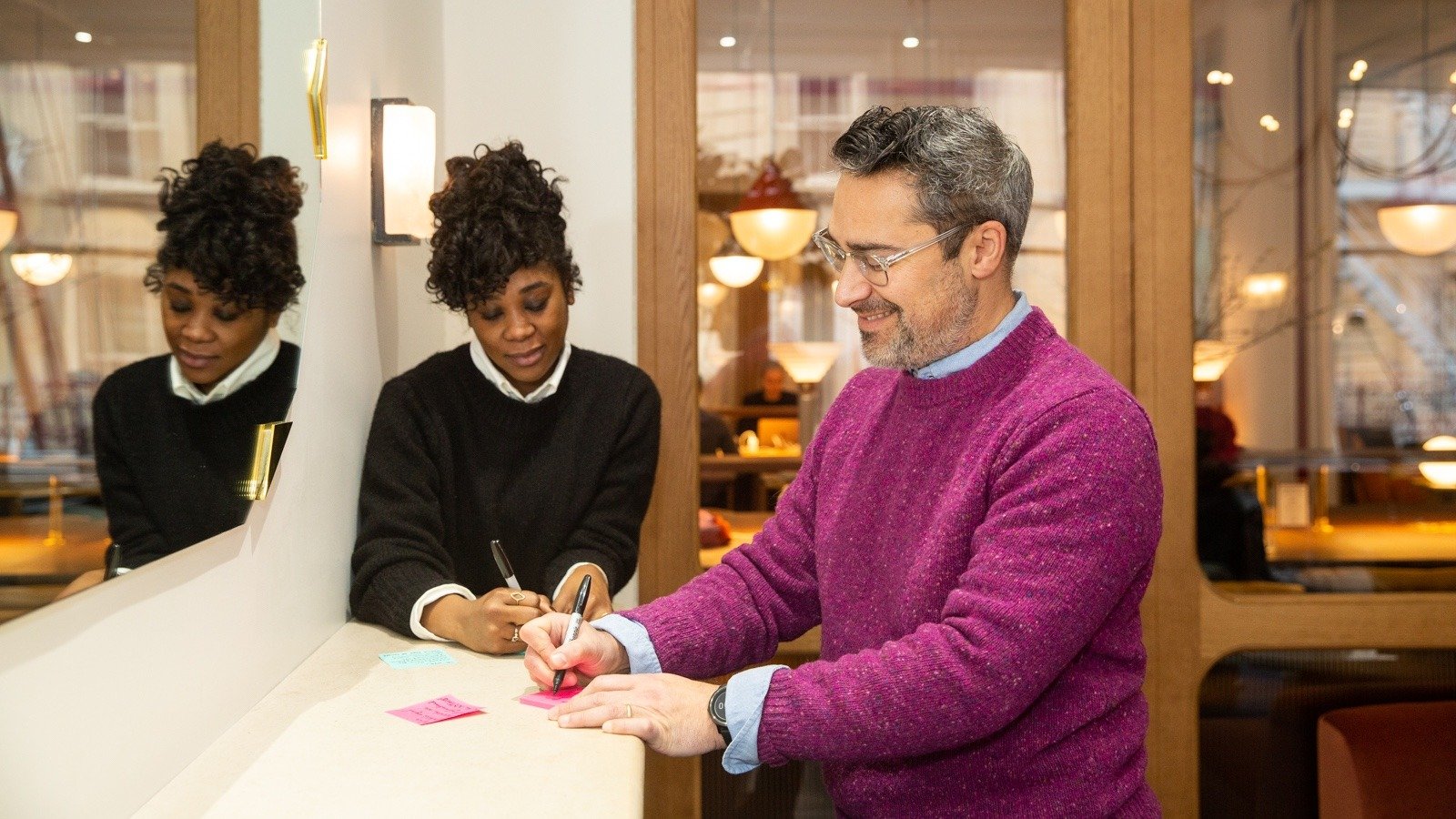Published May 16, 2024 | Updated May 24, 2024 | 5 minute read
When I first decided to become a runner, living in Brooklyn, the most I could do was to jog half a mile to a nearby pier, stop to catch my breath, and jog back home.
So that’s what I did. I started with what I could do at the time, and built from there.
That was eight years ago. I’ve stuck with it, and these days I can run a pretty easy 5k, which I do a few times per week. But this spring I decided it was time to take it to the next level. So I signed up for my first half marathon.
This race is more than 4x longer than I’m accustomed to. Despite my long-term, regular running habit, there was no way I could complete a half marathon on my current abilities as a runner. So for the past few months, I’ve been building up my capacity to run the race.
I’ve gradually increased my distances, mixed in weights and intervals, researched and purchased the right shoes, learned about the best foods to eat, and practiced running in different weather and on different terrain. I’ve even been mentally preparing for the experience of running with an audience.
My goal isn’t to win, just to finish. Even so, the preparation is pretty intense!
As an organizational change consultant, I can’t help but draw a parallel between my relatively modest personal transformation as I’ve prepared for this race, and the gargantuan transformations I coach my clients through every day.
Organizational transformation is way more complex than a half marathon. A better comparison would be a triathlon, which comprises swimming, biking, and running, over a much greater distance.
But the principles of capacity-building are the same. Completing a big goal, whether it’s a triathlon or a transformation, has much more to do with how well you’ve prepared than your actions on the big day itself.
Organizations that actively train people in the skills of transformation are far more likely to achieve successful organizational change than those that get bogged down trying to craft the perfect strategy.
At August we view transformation as an ongoing capability, not an end goal. When organizations prioritize training people in the skills of successful organizational change, the change itself becomes a natural outcome rather than a one-time, all-or-nothing effort.
Successful organizational change is a process, not a result.
70% of organizational transformations fail. This is not an encouraging statistic, but the reason for this high rate of failure is built into the metric itself. When we view transformation as a one-time pursuit with a fixed end goal, failure becomes far more likely.
However if we view transformation as a set of capabilities that we build and improve over time, we become capable of not only succeeding at a single transformation effort, but at sustaining an ongoing culture of transformation that’s continually sensing and responding to change.
If an aspiring triathlete spends six months sitting at the kitchen table planning every step of her triathlon, but never gets on a bike, goes for a run, or swims a single lap, we can be pretty sure that A) she’ll fail at the race, and B) she’ll never try it again.
But if she spends those six months swimming, biking and running multiple times a week, shoring up her nutrition and mentally preparing, not only will her body and brain transform into those of a triathlete, but when she crosses that finish line, we can be near certain that this race will not be her last. Who would put in all that work for just one race?
Organizations that want to be agile and relevant in today’s marketplace need to train their people to become “Transformation Athletes.” When your workforce is well practiced in the skills and mindsets for successful organizational change, they will be capable not only of today’s transformation, but future transformations as well.
What are the skills of a Transformation Athlete?
A Transformation Athlete has a versatile, well-developed toolkit for navigating complex change. These tools include a number of simple, impactful ways of working that can be intuitively integrated into existing projects and teams.
Agile Ways of Working
In a triathlon, physical agility can shave precious seconds off of the transitions between challenges, and enable the athlete to navigate unexpected obstacles along the way. In organizations, agility enables us to sense and respond to change, to learn and iterate quickly, to collaborate effectively, and innovate in unpredictable circumstances.
Just like a triathlete might do repeating drills to build her agility, organizations can build agile practices into everyday teaming. Retrospectives, working in public, meeting with purpose, and responsive mindsets are all skills that can be developed through everyday practice.
Download our Agile Practices Starter Stack
Building REAL Trust
A triathlete has to believe in her ability to finish the race. If she enters the race untested and unproven even to herself, fearful that she can’t pull it off, she’s much more likely to give up before the finish line regardless of her physical capacity.
Organizational trust has a similar impact on transformation efforts. A low-trust organization that attempts a major change effort will encounter friction and inertia among its people, while a high-trust organization will encounter curiosity and confidence.
At August we often say that trust is built in teaspoons and lost in buckets. When you build a robust culture of trust in small steps every day, you enable your organization to navigate the unknown with cohesion and competence.
Read our blog on The Four Cornerstones for Building REAL Trust
Psychological Safety
A triathlete who fears speaking up about her areas of discomfort or inexperience is far more likely to injure herself than one who shares openly when they feel something is amiss. “Pushing through the pain” and “figuring it out on the fly” are risky mindsets that can cause real damage.
In organizations, we call this “psychological safety” – the belief that you can ask questions and raise concerns without fear of being penalized. Organizations with high levels of psychological safety are better at mitigating risk and seizing opportunities. Team members with high psychological safety are more likely to adopt new ways of working when they feel safe sharing their objections or concerns.
Read our whitepaper: Looking at Psychological Safety Through an Equity Lens
Empowered Decision Making
A triathlete must be capable of making rapid, precise decisions in response to new information in real time. Weather conditions, competition, pacing, obstacles, injuries, mistakes – all of these raise acute decision moments that require expert navigation.
The skill of decision making is critical for successful organizational change as well. Team members need to know how to efficiently define the decision, identify stakeholders, designate a decision owner and an appropriate method, and participate skillfully in the decision-making process.
Read our whitepaper: Decision Making Can Be a Lever for Organizational Change
Organizational transformation is a skill you can get better at.
When I complete my half marathon next month, I will be very proud of my achievement. But I hope that I’ll eventually look back on this race as a step on a much bigger journey. Maybe I’ll even run a full marathon someday. I’d love to run in different races around the country, with different terrain and different challenges. At minimum, I want to incorporate longer distances into my personal running routine. I certainly don’t expect this half marathon to be the final chapter of my running career.
This is how we should all be thinking about organizational change. When organizations train their people in the skills of transformation, they become capable of much more than a single change initiative. These are the organizations that will compete to win through all manner of challenges, and maintain an ongoing resilience and responsiveness to change.


.jpg)






